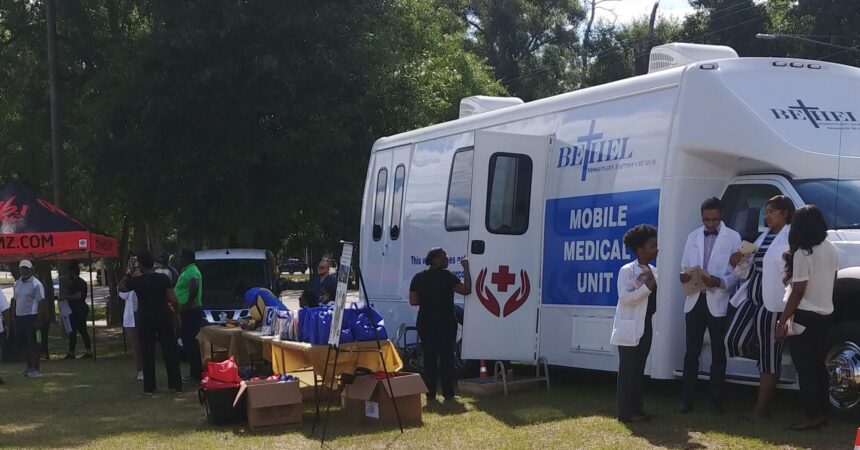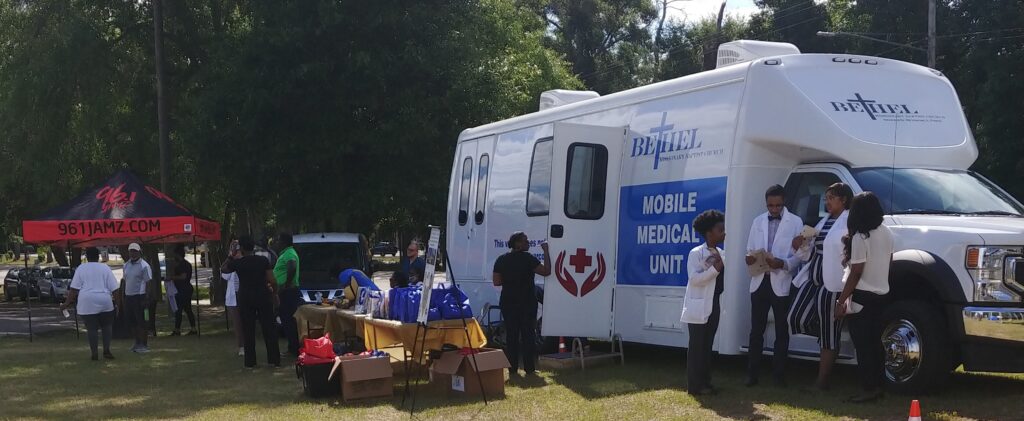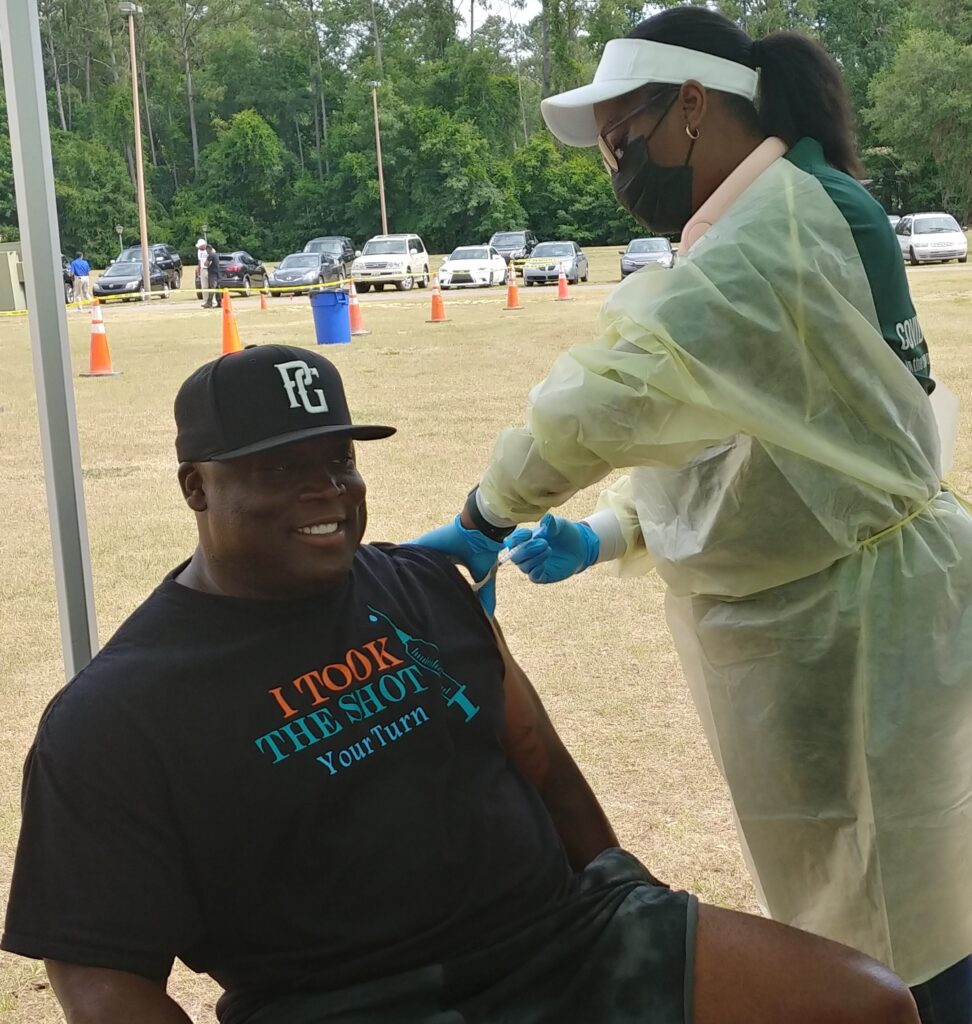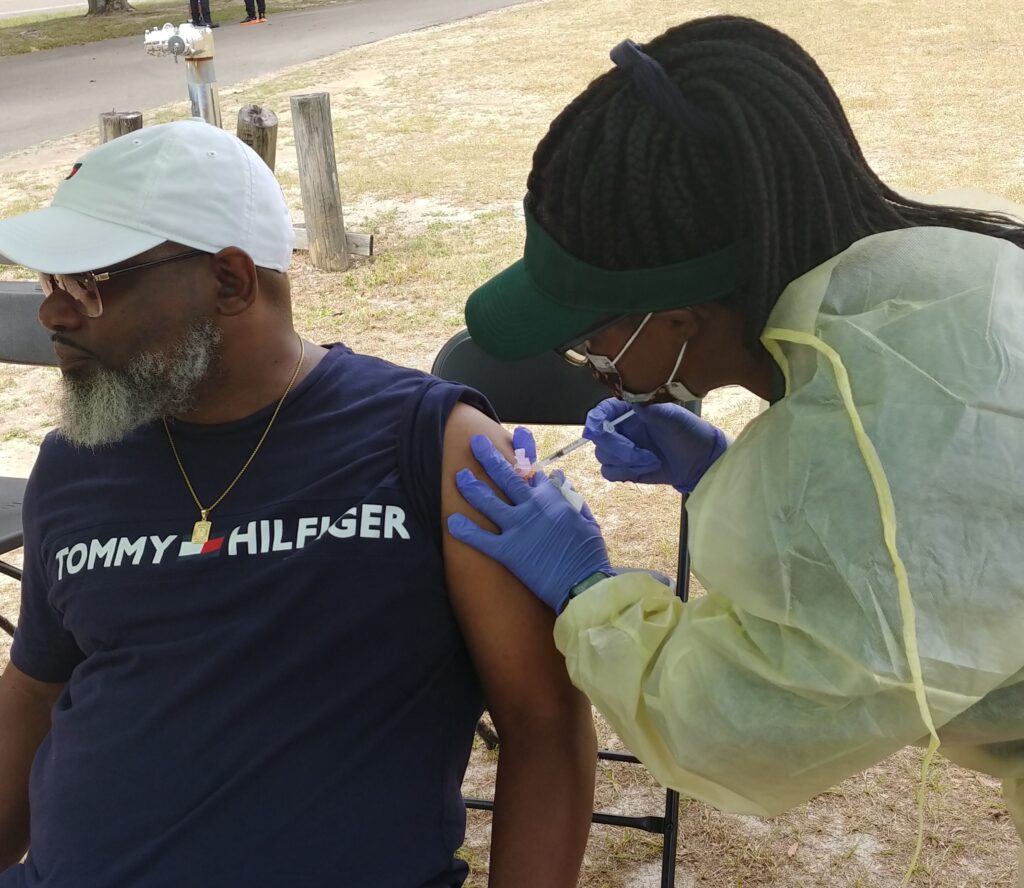
Men get COVID-19 vaccinations at festive event
who got a COVID-19 shot last Saturday at the Enrichment Center.
Photos by St. Clair Murraine

had plenty of choices for taking the COVID-19 vaccination.
Photo by St. Clair Murraine
By St. Clair Murraine
Outlook staff writer
It shouldn’t have come to the point that organizers of an all-in campaign had to put on an event at the Enrichment Center to get men vaccinated against COVID-19.
Corey Fuller knows why, though. He’d heard the stories about why men don’t want to be vaccinated, sometimes even if it’s not related to the pandemic but necessary for their physical wellbeing.
Even though he was doing fine until he contracted the coronavirus in February and it spread through his household.
“It did me so bad,” said Fuller, head football coach at Gadsden County High School. “I thought that I was potentially going to die because of the numbers and because of what it had done to so many people. It was a real shocker. What it did to me was devastating.”
Fuller endured several of the symptoms while he and his family quarantined against the virus. He followed a waiting period before taking his first of two shots against the disease that attacks the respiratory system.
Fuller took his second dose of the vaccine last Saturday when several other men turned out to be vaccinated. The event was the brainchild of Greg James, pastor at Life Church International Center.
Several week ago, James led a collaborative effort between the Interfaith Ministerial Collective of Tallahassee and the Coronavirus COVID-19 Vaccination, Education and Engagement Task Force. They brought together several health agencies, including Bond Health Center, Leon County Health Department and Florida Department of Health.
“We are breaking some of the barriers that men face, and fear is a big one,” James said.
During the four-hour event the scene was festive with food, drinks and music. Men were seen greeting friends they hadn’t seen in sometime during the pandemic. Some took to the microphone to encourage others who just showed up as spectators to take the vaccine. There were plenty of choices — Bond Health Center, the Leon County Health Department and Bethel Missionary Baptist Mobile Medical Unit.
Men became the focus for the day of vaccination because they count low in the number of individuals vaccinated. In a breakdown of counties by the Florida Department of Health, 36 percent of Leon County residents were fully vaccinated as of June 1. Over the same time period, the department also shows that 43 percent of people living in the county received at least one dose of the vaccine.
While it wasn’t clear how many men were vaccinated, James estimated that 50 to 75 would have meant a good day. Even if the numbers weren’t attained, James figured the information disseminated was worthwhile.
“Once people became educated, then they became empower and once they became empowered, they became engaged,” he said. “It makes it really, really easy to get it done.”
Elaine Bryant, director of the Coronavirus COVID-19 Vaccination, Education and Engagement Task Force, applauded the many organizations behind the event. The approach of targeting men is a necessary one that has to continue, especially because of the vulnerability of Black men, she said.
“I’ve had so many of them tell me, ‘Elaine; I just don’t like needles,” she said.
Noting that the event was taking place during Men’s Health Month, Bryant said the focus on men should be more than just getting vaccinated against the virus.
“We have to put at the front of our priority list keeping ourselves healthy,” she said. “We have to take shots, we have to take immunizations, we have to eat appropriately. As a race of people we have more high blood pressure, diabetes and other health issues that we struggle with on a regular basis. Today, this initiative is very large; it’s a big event because we have brought together several entities.”
Saturday marked the debut of the Bethel medical unit, which was there to give out information. And, there is plenty of work to be done with a grassroots effort to vaccinate people in hard-to-reach areas, said Claudette Harrell, director of the unit.
The approach will be determined after data is gathered from health agencies in the city, county and state, she said.
“We’re going to look at that data and determine where the gaps are,” she said. “Where are the pockets within the community that have not been served.
“We have to look from the perspective of many variables instead of saying one component is more significant than the other. We have to bond together to take the services to the people and that’s the approach we are looking at.”









